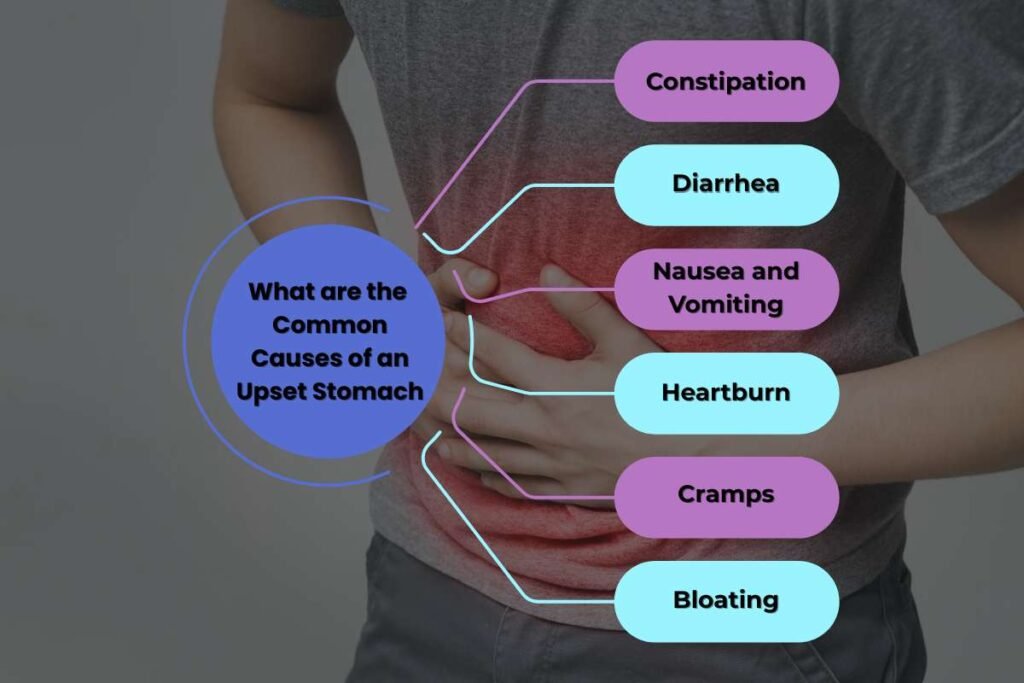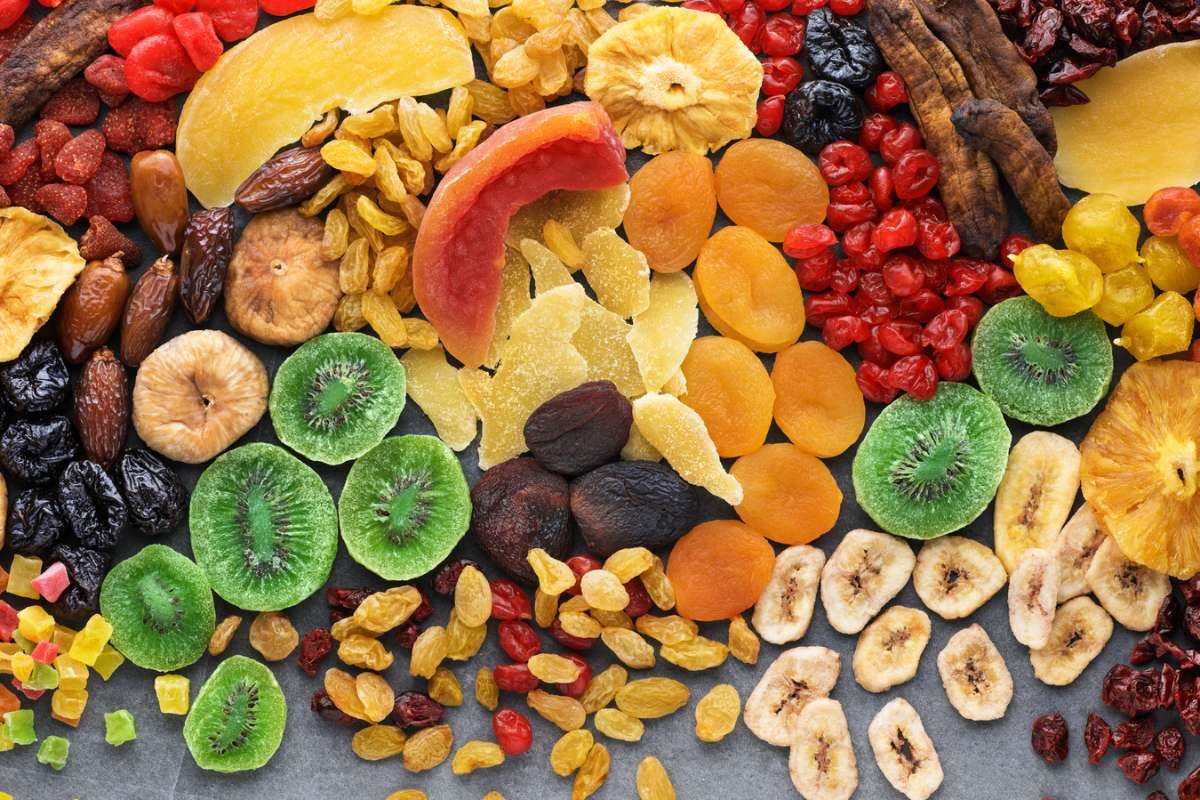We have all experienced it. An upset stomach can leave you feeling uncomfortable, bloated, or even in pain. This can make it difficult to eat or go about your day. Following the right diet for upset stomach can help soothe irritation and restore balance. Pay attention to how your body responds to different dietary choices. By doing this, you can support faster relief and promote better digestive health. But what exactly causes an upset stomach? In this article you will find what causes an upset stomach. You will also learn how to modify your diet for upset stomach.
What are the Common Causes of an Upset Stomach?

1. Constipation:
Constipation is defined as having fewer than three bowel movements per week. Constipation is not uncommon, but for some people it can be a chronic condition.
2. Diarrhea:
This is a condition that causes you to have loose and watery stools. This constant bowel movement can take a toll on your stomach.
3. Nausea and Vomiting:
Nausea is the most common symptom associated with an upset stomach. It can often result in vomiting and throwing up. However, the exact cause that triggers nausea can be hard to find. Nausea can be caused by a variety of factors, like gastritis, GERD, gastroenteritis, etc.
4. Heartburn:
Heartburn is caused by acid reflux. It is the backup of stomach acid into the esophagus. Overeating or eating quickly can cause heartburn. Eating fatty and oily foods can be a cause as well.
5. Cramps:
Cramps in the stomach are caused by involuntary contractions of the abdominal muscles. It can lead to abdominal pain. The pain can range from mild to severe. Stomach cramps can be caused by various stomach issues, like Irritable Bowel Syndrome (IBS) and constipation
6. Bloating:
Bloating is when your stomach feels full and uncomfortable. It can cause pain that can range from mild to moderate.
These are some reasons why you might have an upset stomach. It is important to identify what exactly is causing your stomach problems. This is because different causes have different solutions. But when facing stomach issues, the one thing you have control over is your diet. Depending on the problem, you can apply a diet for upset stomach to help ease any severe symptoms. What are these diets?
Different Diets for Upset Stomach / Foods for Upset Stomach
1. Constipation
Foods for Upset Stomach :
Carrot, broccoli, green beans, cherries, berries, prunes, pears, apple juice, oats, whole grain, quinoa
Constipation often results from insufficient fiber and low fluid intake. So, a diet for upset stomach like this plays a key role in relief. A diet of whole grains, vegetables, fruits like apples and prunes, and legumes is required. It helps add bulk to stools and promotes regular bowel movements. Adequate hydration is equally important to soften stools and support digestion. Probiotic foods such as yogurt and kefir can further enhance gut health.
Foods Not for Upset Stomach :
Processed food, red meat, dairy, packaged meals, and snacks.
Avoid processed foods, red meat, and excessive dairy. They slow down digestion and reduce bowel movement frequency. Fried and refined foods, such as pastries or white bread, lack fiber and worsen constipation. Limiting caffeine and alcohol is also recommended, as they dehydrate the body.
2. Diarrhea
When dealing with diarrhea, the stomach benefits from light foods that are easy to digest. The BRAT diet is often recommended. It includes bananas, rice, applesauce, and toast. Hydration is crucial to replace fluids and lost electrolytes. Options like coconut water and oral rehydration solutions can be effective. Lean proteins and plain potatoes may be included once symptoms improve.
Foods for Upset Stomach :
- BRAT Diet –
- B-bananas
- R- rice
- A- applesauce
- T -toast
Foods Not for Upset Stomach :
- High-fiber foods,
- Greasy meals
- Caffeine
- Alcohol.
Stay away from high-fiber foods, greasy meals, caffeine, and alcohol. They irritate the digestive system and worsen loose stools. Avoid dairy products if you’re lactose-sensitive, along with spicy foods and artificial sweeteners. These may speed up bowel movements and prolong discomfort.
3. Nausea and Vomiting

For nausea and vomiting, the goal is to calm the stomach. Eating smaller, frequent meals prevents overloading the stomach and reduces discomfort. Plain foods such as crackers, toast, and boiled potatoes are gentle options. Ginger tea or ginger chews can naturally soothe nausea. Clear liquids like diluted juices, herbal teas, or broth help with hydration.
Foods for Upset Stomach :
- Ginger
- Crackers
- Toast
- Bananas
- Rice
Foods Not for Upset Stomach :
- Citrus
- Tomatoes
- Greasy or fried meals
- Heavily spiced dishes.
Avoid foods with strong odors, greasy or fried meals, and heavily spiced dishes, as they often worsen nausea. Acidic foods like citrus and tomatoes can irritate the stomach. Carbonated beverages and caffeine may increase discomfort. They should be avoided till your symptoms improve.
4. Heartburn
Heartburn is best managed with foods that reduce acid reflux triggers. Eating smaller, more frequent meals helps limit stomach acid production. Choosing foods like oatmeal, bananas, melons, and green vegetables can neutralize acidity. Lean protein sources, including grilled chicken, fish, or tofu, are less likely to aggravate symptoms.
Foods for Upset Stomach :
- Oatmeal
- Melons
- Green vegetables
- Lean proteins.
Foods Not for Upset Stomach :
- Citrus fruits
- Tomatoes
- Chocolate
- Coffee
- Carbonated drinks
Avoid citrus fruits, tomatoes, chocolate, coffee, and carbonated drinks. A study published in the National Library of Medicine concluded that consuming carbonated drinks and citrus fruits increased the risk of acid reflux. Fried, fatty, or heavily seasoned foods slow digestion and heighten reflux. Eating large meals or lying down soon after eating can also make heartburn symptoms worse.
5. Cramps

Stomach cramps can often be alleviated with foods that are light, soothing, and easy to digest. Soups, soft-cooked vegetables, and gentle stews are good choices during cramping episodes. Magnesium-rich foods like spinach, pumpkin seeds, and almonds can also support muscle relaxation. Incorporating foods such as yogurt may help balance gut bacteria and reduce digestive upset.
Foods for Upset Stomach :
- Fruit
- Prune juice
- Whole grains
- Spinach
- Pumpkin seeds
Foods Not for Upset Stomach :
- Beans
- Cabbage
- Cauliflower
- Carbonated drinks
Gas-producing foods like beans, cabbage, cauliflower, and carbonated drinks often intensify stomach cramps. Spicy or fatty foods may irritate the digestive system, while processed snacks can cause bloating. Reducing caffeine and alcohol intake also helps, as they can worsen abdominal discomfort.
6. Bloating
Bloating can be reduced with foods that minimize gas production. Eating smaller, frequent meals helps prevent the stomach from feeling overly full. Incorporate low-FODMAP foods in your diet for upset stomach like this. Zucchini, carrots, rice, and strawberries can reduce fermentation in the gut. Herbal teas like peppermint and chamomile can relax the digestive tract and relieve discomfort. Staying well-hydrated helps move gas and waste through the system.
Foods for Upset Stomach :
- Rice
- Carrots
- Strawberries
- Zucchini.
Foods Not for Upset Stomach :
- Beans
- Onions
- Broccoli
- Dairy
- Fried foods
- Artificial sweeteners
A study published in the National Library of Medicine suggests that high-FODMAP foods such as beans, onions, and broccoli increase bloating. Carbonated drinks and chewing gum add excess air to the stomach. Limiting dairy, fried foods, and artificial sweeteners may further help reduce bloating symptoms.
To Summarize Diets for Upset Stomach / Foods for Upset Stomach :
| Stomach Problems | Foods to Eat | Foods to Avoid |
| Constipation | Carrot, broccoli, green beans, cherries, berries, prunes, pears, apple juice, oats, whole grain, quinoa | Processed food, red meat, dairy, packaged meals, and snacks. |
| Diarrhea | BRAT Diet – bananas, rice, applesauce, and toast | high-fiber foods, greasy meals, caffeine, and alcohol. |
| Nausea and Vomiting | Ginger, crackers, toast, bananas, rice | Citrus, tomatoes, greasy or fried meals, and heavily spiced dishes. |
| Heartburn | Oatmeal, melons, green vegetables, lean proteins. | citrus fruits, tomatoes, chocolate, coffee, and carbonated drinks |
| Cramps | fruit, prune juice, whole grains, spinach, and pumpkin seeds | beans, cabbage, cauliflower, and carbonated drinks |
| Bloating | Rice, carrots, strawberries, and zucchini | beans, onions, broccoli, dairy, fried foods, and artificial sweeteners |
There, you now know how to combat an upset stomach. But you might be wondering: what can you do to avoid getting an upset stomach in the first place? Well here is the answer
What are Some Foods Not for Upset Stomach 😕

Developing healthy eating habits can make a big difference in supporting your digestive health. Eating slowly allows your stomach the time it needs to signal fullness, helping prevent overeating. Taking the time to chew thoroughly also improves digestion by breaking food into smaller pieces and mixing it with saliva, which begins the digestive process.
In addition, avoid gulping down meals, as this can cause you to swallow excess air, leading to bloating or gas. Opt for smaller, more frequent meals rather than heavy ones, which put extra strain on your system. Lastly, try not to eat right before bedtime—waiting at least three hours before lying down can reduce the risk of acid reflux and promote smoother digestion.
Conclusion:
Managing digestive discomfort begins with knowing the impact of eating habits on gut health. A carefully planned diet for upset stomach can ease irritation. It can support the body’s natural healing process. Consistent attention to diet can help prevent recurring discomfort. Remember, listening to your body and making gradual dietary adjustments is often the key to lasting relief.
FAQ
1. How long should you follow a diet for upset stomach?
A. Most people benefit from following a gentle diet for 24–48 hours until symptoms improve. If discomfort persists longer, it may be best to consult a healthcare professional.
2. When should you see a doctor for an upset stomach?
A. If symptoms last more than a few days, worsen over time, or are accompanied by severe pain, dehydration, or fever, medical attention is recommended.
3. Is hydration important when following a diet for upset stomach?
A. Yes, Staying hydrated is essential, as an upset stomach may cause fluid loss and dehydration, making recovery slower.
Also Read ;- What Are Some Foods To Avoid GERD? Here Is How You Can Reduce Constant Acid Reflux









